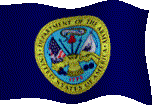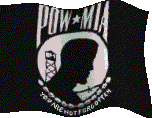To expedite your journey through this website, please use the following links!
![]()
- Aviation Quotes
- Commercial Aviation
- General Aviation
- Military Jokes
- Helicopter Jokes
- ATC Jokes
- Non Aviation Jokes

![]()
The Army



Well, I'm in Alaska. It must be the
coldest place on Earth. That would explain all the snow on the ground.
Actually, it's not that cold...yes I've been out when it was -55°F, but it
doesn't seem that cold. Maybe my nerves were frozen?
When I joined the Army in 2000. I had
to go to Basic Training (even though I had already went through USAF Basic
Training). That was Ft. Benning, Georgia. After that I was sent to Mother
Rucker (Ft. Rucker), Alabama. There I attended Warrant Officer Candidate
School (WOCS). I stayed at Ft. Rucker to attend flight school.
Flight School consisted of the
following phases: Primary, Instruments, Basic Combat Skills (BCS), Nights,
Warrant Officer Basic Course (WOBC), and then Aircraft Qualification Course
(AQC).
Primary was 8 weeks long, and we flew
the TH-67. The TH-67, is actually a Bell 206 JetRanger Helicopter. In
Primary we learned the parts and pieces to the helicopter, basic maneuvers,
basic emergency procedures, and we learned how to drop from 1000 ft to the
ground without breaking the aircraft in an autorotation. In Primary, you do
hundreds of autorotations. Over and over again. From a hover, from the air,
and from the air with a 180° turn, you autorotate. Oh, you also learn to
hover. After you learn and do it a while, it doesn't seem that hard. But
that day that the instructor tells you, "Ok, you have the controls." and
then lets go...and you hold that hover...steady as a rock...for about .0005
second before the helicopter begins to turn and slide and starts to go up
and/or down. Its probably the funniest and sometimes scariest thing you will
do. After a few days you get the hang of it, but you are not steady as a
rock at all.
In Instruments, we learn how to fly
when you are in the clouds, or really bad weather. Sound easy enough. Just
follow the dials, and flip some switches and your a pro right? Not really...
there is a lot more than that. Some people cannot grasp the concept, and its
hard because you are in the cloud, can not see anything, trusting your
instruments (even though your body is saying your leaning, the instruments
says your straight...the instruments are right!), and you don't know where
you are, where you are going, how to get there, and then there are special
procedures to fly in there. Not to mention all the chatter on the radio. It
can be a lot to grasp. Since only 5 weeks ago you were just learning to
hover. And in the infinite wisdom of the Army, time in the air is more
important than on the ground (TRUE), so only the IP's can hover around for
the 10 weeks that you are in Instrument training. Hovering is a
PERISHABLE skill. After weeks of spinning around in the clouds,
watching the little dials, and flipping the swicthes, you finally break out
of the clouds and you are lined up with the runway and you realize "this
stuff really works!" However, you don't really know what you've done, or how
you got there, but whatever it was, it worked.
So, your now out of the clouds in Basic
Combat Skills. On day one, the IP says, "Pick it up to a hover." Keep in
mind that you haven't hovered in over 10 weeks ( 17 weeks in my case because
we had a "bubble," too many students and not enough instructors). So
hovering, being a perishable skill, is now another hill you must overcome
AGAIN! And then you get to autorotate again. But this time your in a
OH-58A/C. A lot like the TH-67, but with a longer tail rotor shaft, and
larger rotor blade. It also does NOT have all the pretty plastic lining in
the cockpit with the carpet...it's a military aircraft now. But you can fly
with the doors off. That is fun. There is nothing like looking down at you
feet and seeing the ground a few inches away, and 1000 feet below. You
realize that that seatbelt is the only thing holding you in the cockpit.
Visibility is much better though! But after the first couple of weeks
learning how to hover and autorotate again, you learn to navigate on
military maps. Learn pilotage and dead reckoning, and how loud your IP can
be when you accidentally fly over that "No Fly" area you forgot to mark on
your map! You learn to hover between trees, give spot reports on simulated
enemy location, react to simulated enemy fire, mask and unmask. Then you get
to release all you frustrations of navigating because your IP will navigate
and you get to fly. The IP says, "Stay about 50 feet above the tree tops and
bank 30° when I say left or right and 60° when I say hard left or hard
right. And do not hit a tree or any wires." Zipping along the tree tops is
fun. Don't forget you are in the Army and in training, Army training is not
suppose to be fun. But you are having a blast. Low level flight, contour
flight, and nape of the earth flight (NOE). This is what Army aviation is
all about. Then there is the formation flight. Quite difficult to do at
first. Trying to keep up with the aircraft in front of you as they whip up
and down. Speeding up and slowing down and hoping the guy behind you is
slowing down when you slow down. Being rear ended in a helicopter is very
serious. To many spinning parts and of course GRAVITY. Gravity always
wins!
Nights. Flying at night is just like
flying during the day, except you can't see. If you are going down, at
night, turn on your landing light; if you don't like what you see, turn it
back off. During nights you get to sleep in, in the mornings. You get to
wear night vision goggles. You get to turn night into "day" with the
goggles. However the "day" is very green. At first you are amazed at how
well these things work. I mean you look around and cannot see anything, pop
the goggles down and you can see nearly everything. You quickly realize that
you can fly with these. All the stuff you learned in the last 28 plus weeks
are all sinking in. The aircraft is an extension of yourself. You are
controlling the aircraft without thinking about it, it becomes natural. And
you need some aspirin because those goggles begin to hurt your eyes, the
helmet is heavier now, your neck begins to hurt. And now you have to
navigate again...in the dark. Thank God it is only a few weeks long.
Warrant Officer Basic Course was back
to the administrative portion of being an officer. Except it is tailored to
Aviation Warrant Officers. You learn the most important thing about being an
aviator in the Army. This is the one thing you will cherish or curse the
entire time you are in the Army...which aircraft you are going to fly. Some
people get the aircraft they have desired for a long time, some people don't
know what they want and just pick one at the end, some people hate certain
aircraft and get "stuck" with that aircraft, because there is nothing left.
This decision will usually determine how long this aviator will stay in the
Army. But you learn more of the administrative stuff about your aircraft.
Such as how to plan Air Assaults, etc. And then you get to learn about
survival in the woods. Class B SERE School. Learn how to not eat for a week,
there is no secret you just don't have food! Learn to evade, and evade
through the woods at night. Get picked up at you PZ. And you get to have an
Aviation Ball! Get to wear the Blues that you are required to buy. And
then...GRADUATION. You graduated after WOCS and got your "spot," but this
was different now you are getting your wings. Now when I was a young boy I
dreamed of getting my wings. I always assumed they would be Air Force wings,
but wings were wings. My grandfather, Thomas William Baine III, had Army
Aviator wings (because he was in the Army Air Corps, later to be named the
US Air Force), so I had the same wings he was pinned over 50 years before.
That meant something to me! But needless to say I got pinned. And I loved
it. No one could have knocked me off my pedestal that day. My dream,
slightly altered, was accomplished!
The following is a link to the Alaska
Post regarding the change over from the Rising Eagle insignia to the
Aviation Branch Insignia for Warrant Officers,
under construction